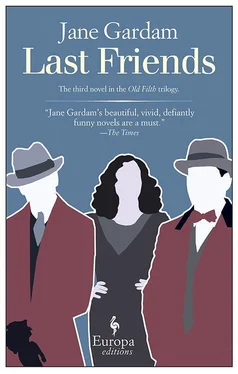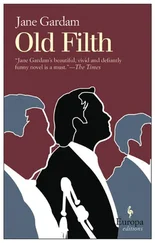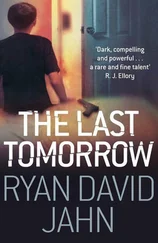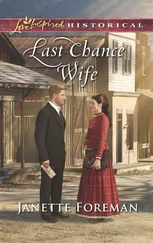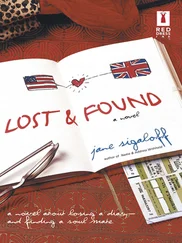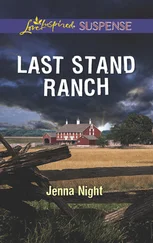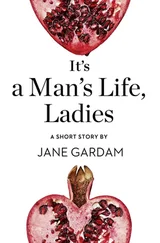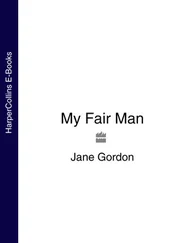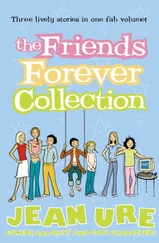Soon he was being invited to dinner — always, of course, without Florrie — by the headmaster of a local private school and his artistic wife while, in Muriel Street, Florence suckled the child over the kitchen range. She sang to it, made clothes for it, wished her mother were alive to see it. Wished she had been kinder to her mother.
Her husband, seated at the headmaster Harold Fondle’s great mahogany dining table with its lace mats and good crystal, spoke in improving English and fluent French of Plato and Descartes. His English was without accent, he looked distinguished and he appreciated the wine. When anybody broached the question of his past life or his future, or his allegiances he would raise his glass and say, ‘To England’.
He grew strong again, and after the child was weaned decided to go into business as a coal merchant. He carved and then painted the gold and green sign in the slaughter-house alley. The butcher thought little of it (‘You don’t start a business by mekkin a painting of it’). When Anton’s back gave out for the second time, Florrie found him twisted, lying in the alley under a sack of coal, the thin horse munching into its nose-bag.
She hauled him somehow back indoors where Nurse Watkins came and they got him up at last on the bed. The baby — the alert and golden, happy baby — lay watching from his cot, which was a clothes drawer. The doctor came.
Both parents that night wept.
* * *
The next day was the day of the week when Griesepert came to them with the Sacrament. He never missed. He rolled in like a walrus, snorting down his nose. He stretched out his legs towards the fender.
Today Florrie ignored the Sacrament and sat out in the yard letting them talk. There was whisky, and firelight in the room and the knowing-looking baby wondered whether the grim man on the bed or the fat man over the fire mattered more. The word ‘father’ kept recurring. The baby seemed to listen for it. As to his mother, she was milk and warmth and safe arms but he didn’t pat and stroke her like other babies do. He seldom cried. Occasionally he gave a great crow of laughter. Nurse Watkins with her brass earrings and heavy moustache called him a cold child.
Out of earshot of others Father Griesepert told Florrie she must sleep with the Cossack again or she would lose him (What do you know? she thought). ‘He needs a woman. It is Russian,’ (And him never gone a step beyond Scarborough! she thought. And not knowing the state of his back). Anton had, occasionally, visitors, Russian-speaking, who came and went like shadows. She and the baby sometimes slept on a mattress out by the back door. She lay often listening to the Cossack shouting at invisible companions somewhere she would never know. In the end she told the priest who thought it came from some terrible prison in his past and he was talking to the dead. ‘We know nothing here, nothing of what goes on in these places. One day we might if we live through this next war.’
‘Never another war!’ she said. ‘Not again.’
She tried to imagine Anton’s country. She knew nothing about it but snow and golden onion-topped churches and jewels and stirring cold music and peasants starving and all so blessedly far away. She did not allow herself to imagine Anton’s life before he came to her. She would never ask. At night sometimes, to stop his swearing in his sleep, in words she could only guess, she’d pull out a drawer from the press where she kept her clothes and tuck down the baby among them and a chair on either end to keep the cat off and then climb on to the high bed with Anton and wrap herself round him. Sometimes he opened his eyes. They were unseeing and cold. There were no endearments. The sex was ferocious, impersonal, fast. There was no sweetness in it. She didn’t conceive again.
Her silent faith in the little boy never lessened. Her trust and love for him was complete. As he grew up she asked no questions as he arrived home later and later off the school train. When he was eleven she stopped taking him to the station.
* * *
For by now Terry was wandering far beyond the chip shop and the band-stand. He was roaming over the sand-dunes down over the miles of white sands towards the estuary and the light-house on the South Gare. On the horizon sometimes celestially, mockingly blue, shining between blue water and blue sky stood the lines of foreign ships waiting for the tide to take them in to Middlesbrough docks. Spasmodically along the sand-dunes the landward sky would blaze with the flaring of the steel-works’ furnaces. They blazed and died and blazed again, hung steady, faded slowly. The boy watched.
He was not a rapturous child. The crane-gantry of the Blast Furnaces turned delirious blue at dusk but he was not to be a painter. He noted and considered the paint-brush flicker of flame on the top of each chimney leaning this way and then that but he sat on his pale beach noting them and no more.
He had no idea why he was drawn to the place, the luminous but unfriendly arcs of lacy water running over the sand, the waxy, crunchy black deposits of sea-wrack, slippery and thick, dotted for miles like the droppings of some amphibian, the derelict grey dunes rose up behind him empty except for knives of grey grasses.
There would usually be a few bait-diggers at the water’s edge, their feet rhythmically washed by the waves. A lost dog might be somewhere rhythmically barking out of sight.
Sometimes one or two battered home-made sand-yachts skimmed by; only one or two people watching. No children. This was not sand-castle country. No children in this hard place were brought to play by the sea.
But there was a single recurrent figure on the beaches. It was there mostly in winter as it began to get dark: an insect figure stopping and starting, pulling a little cart, bending, stopping, pacing, sometimes shovelling something up, always alone.
After weeks Terry decided it was a man and it was pushing not a cart but a baby’s pram. For months he watched without much interest but then he began to look out for the man and wonder who it was.
* * *
One cold afternoon he did his usual rat-run of railway bridge to the back of Muriel Street — he now passed through the room with the bed in it — and found his father’s fist stuck out of the blanket towards him grasping a ten shilling note. The wireless crackled on about Czechoslovakia and his father’s lips were trying to say something. Terry pocketed the note and said in Russian, ‘D’you want tea?’
‘Whisky,’ said his father.
‘It’s for the Holy Father. How are you?’
‘I’m well.’
‘You have a good Russian accent. Are you happy?’
Terry had never been asked this, and did not know.
‘I’m going down the beach now, Pa.’
‘Why?’
‘Don’t know.’
The wireless blared out and then faded. They had been first in Muriel Street for a wireless. It stood with a flask of blue spirit beside it. Where had the money come from?
‘I’m glad I know Russian,’ Terry said.
‘How old are you son?’
‘Going on twelve.’
Tears trickled out over the Cossack’s bony face running diagonally from the eyes to the hollows of the neck and Terry knew that, watching, there was something he should be feeling but didn’t know what. He took the money and went to the shop. Let them get on with their lives. He was getting his own.
* * *
He sat down in the dunes facing the sea and soon began to be aware that he was being watched from somewhere behind his left shoulder. Before him the white sands were empty. The sea was creeping forward. He watched the trivial, collapsing waves. The steel-works’ candle-chimneys were not yet putting on their evening performance against tonight’s anaemic sunset.
Читать дальше
